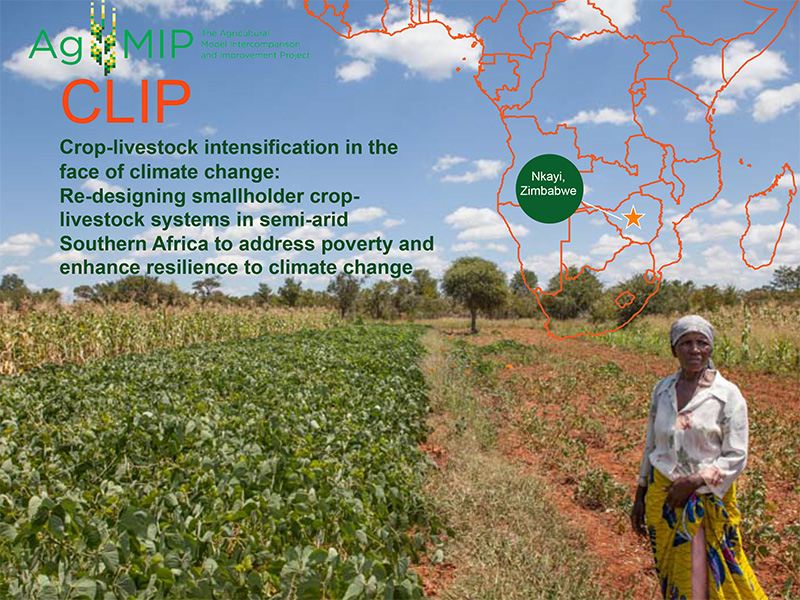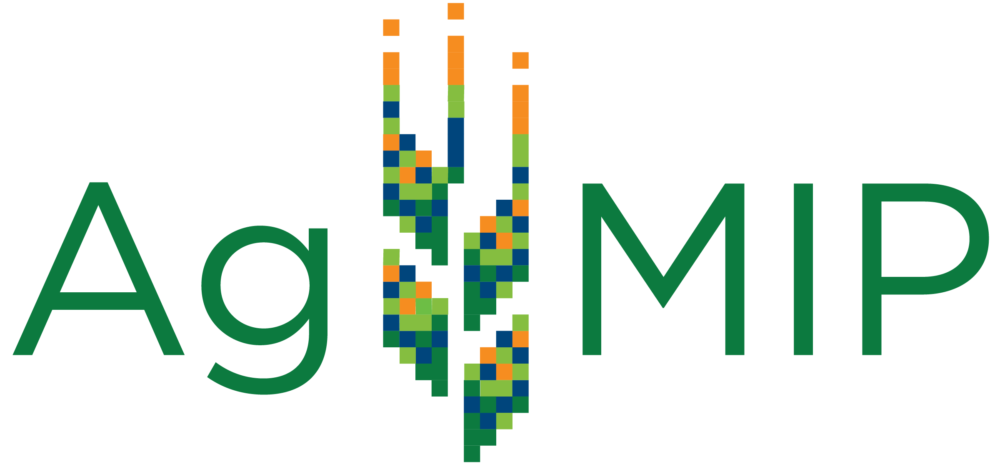South Eastern Africa Team Stakeholder Meeting
Aug 17, 2015
By: Sabine Homann-Kee Tui
AgMIP’s South Eastern Africa Team, CLIP (Crop Livestock Intensification Project) met with stakeholders May 5-6th at ICRISAT-Bulawayo, in Zimbabwe. The workshop, “What do we need to know about climate change, impact and adaptation? Engaging with stakeholders in Matabeleland North”, convened with the purpose of understanding stakeholders’ views on climate change and smallholder farms in order to direct research in AgMIP’s Phase II and build relationships with stakeholders. The workshop also provided an opportunity to discuss Phase I research and solicit ideas on the development of an online tool, the Impacts Explorer, which is targeted for use by stakeholders.
The workshop was organized with the aim of stimulating meaningful discussions and learning between the AgMIP Team and stakeholders. The process began with an exchange of knowledge and perceptions among stakeholders to build a common base for learning. Stakeholders were asked to created influence diagrams to determine their primary concerns about climate change and how they thought climate change could impact their work and communities. Stakeholders were concerned about changes in climate that could impact agriculture and livestock such as those in the water cycle.

Drought, drying of wetlands, increased dry spells, and increasing temperature represent serious obstacles for stakeholders. Decreased water supply where agriculture is rain-fed immediately affects people’s food security and could result in competition over biomass between livestock and humans. While AgMIP’s economic models take these possibilities into account it is important to communicate to stakeholders that the models represent a range of outcomes and not a single answer.
One of AgMIP’s goals is to collaborate with stakeholders and provide information that is useful and applicable in the face of a changing climate. At the workshop participants were arranged in mixed stakeholder groups for translating research information into a format that would be meaningful for decision makers. Stakeholders were presented with key messages from AgMIP’s phase 1 for discussion and then were asked questions such as, would they confirm the message, do they have questions about it, who needs to receive this message, how would they use the message and what would they do differently? The questions facilitated an understanding of how information is received and understood, and how it can be better tailored to provide answers to issues stakeholders have now.
Models can simulate estimates of the impacts of climate change on crops, livestock, and socio-economic conditions, but also provide information on mitigation and adaptation strategies as well. Stakeholder meetings such as this can inspire high energy levels and commitment from the participants. Cooperation between different disciplines and on different scales can answer questions as broad as “how will climate affect me” and as narrow as “how can I ensure survival of my livestock at home during a drought”.
The workshop also offered an opportunity to familiarize stakeholders with the Impacts Explorer, an iterative web-based tool for stakeholder engagement currently in development. The tool aims to enhance usefulness of research results and insights to a wider audience, assist in decision making support – especially for policy, provide a space to share data and other information, and open a dialogue on research needs and knowledge gaps. At the workshop a discussion was held on the Impacts Explorer about who should be using the tool, and who should receive the answers that are developed.
Workshops such as this provide an opportunity for AgMIP to work with stakeholders to find creative solutions to important issues. Stakeholders often have very precise questions and a need for information that provides solutions at different scales. These interactions between stakeholders and AgMIP teams create a forum for providing clear information both for the researchers and the policy makers. Stakeholder meetings are an important part of the process for directing AgMIP’s Phase II research and drafting specific objectives for future stakeholder engagement and needs.
